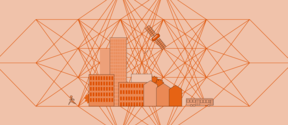‘A photographer is born together with the camera, through many different encounters’

What is your research about?
My doctoral thesis deals with learning in documentary photography workshops. What happens in them and what and how does one learn in them? I looked at two documentary workshops organized at the Lahti Institute of Design, in which the photography of the students is at the core. The teachers of the study, Stefan Bremer, Japo Knuutila and Jan Kaila, have carried out workshops using self-developed concepts for decades in Finnish photography study programs.
My interest in doing research has stemmed from observations and reflections in my work as a photography teacher. I am interested in the process of learning to be a photographer. As a photographer and photography teacher, I use my own experiences on the familiar topic in my research, so my research is methodologically home-ethnographic.
What's important in it?
This is the first study in Finland that focuses on pedagogy and learning in university-level photography studies. When looking at studying for art professions, the emphasis is often on individual learning and the construction of an artist identity. Personally, I view learning for the art profession as a socio-material process. In my research, I apply actor network theory, i.e. I consider that learning to be a photographer is to experience the trials of the unified functioning of human and camera in different encounters in photography environments as well as teaching situations in the dialogue between the teacher, the student and the student group.
Learning to become a photographer takes place when the joint action of the camera and the human being becomes tested. The teacher teaches in many ways, for example by setting up an opposition to the student and challenging them to overcome themselves as photographers. In my research, I examine the dialogue and authority relation between the teacher and the student, but also the joint throwing into creative work that enables learning.
I also look at the changes that digitalization and the internet have caused to photography and its learning processes. The documentarist now acts in a networked world, where the information concerning the study of art is easily available, international contacts are created through social media and the sharing of images changes the human attitude towards photography.
What can it lead to?
The starting point of the documentary work is finding a topic in the world, a time-bound phenomenon. I consider this approach even more important. The world is filled with perfect images of a perfect life. Young people are growing up to present their lives to the camera, to build an identity and an outer shell on social media.
Neo-materialism and post-humanism challenge us humans to rethink our own place in the world: on the one hand as part of nature, on the other hand as part of the technology we develop. The theoretical approach of my research helps to understand one’s self as a mixed and constantly renewing hybrid that mixes with everything else living and non-living. We grow and change in relation to the world around us - a world we are one with.
I argue that in the study of art, including applied art, it is important to maintain openness and experimentation as a central part of creative work. I suggest that acting as a documentary photographer could be viewed through the idea of the nomadic subject by philosopher Rosi Braidotti: in the nomadic moving world relationship, the photographer can also approach the challenges of documentary photography in new ways.
I hope my research will serve as a kind of reflection surface for people who teach and study photography in our ever-changing field. The reflection on teacher-student relationships offered by my research is linked to the demands for equality that are strongly present in art colleges right now. My doctoral thesis also offers concrete proposals for the development of university-level photography and art pedagogy.
Paulina Pasanen defended her doctoral thesis Tested through encounters. Learning in documentary photography workshops at Aalto University 16 April, 2021.
More information:
Lecturer Pauliina Pasanen, [email protected], p. 044 708 9884
- Published:
- Updated:
Read more news

DeployAI Partners Gather for Heart Beat Meeting in Helsinki
The European DeployAI project's partners gathered for the Heart Beat meeting hosted by Aalto University Executive Education in Helsinki.
Get to know us: Associate Professor Maria Sammalkorpi
Sammalkorpi received her doctorate from Helsinki University of Technology 2004. After her defence, she has worked as a researcher at the Universities of Princeton, Yale and Aalto.
Aalto computer scientists in ICML 2024
Computer scientists in ICML 2024